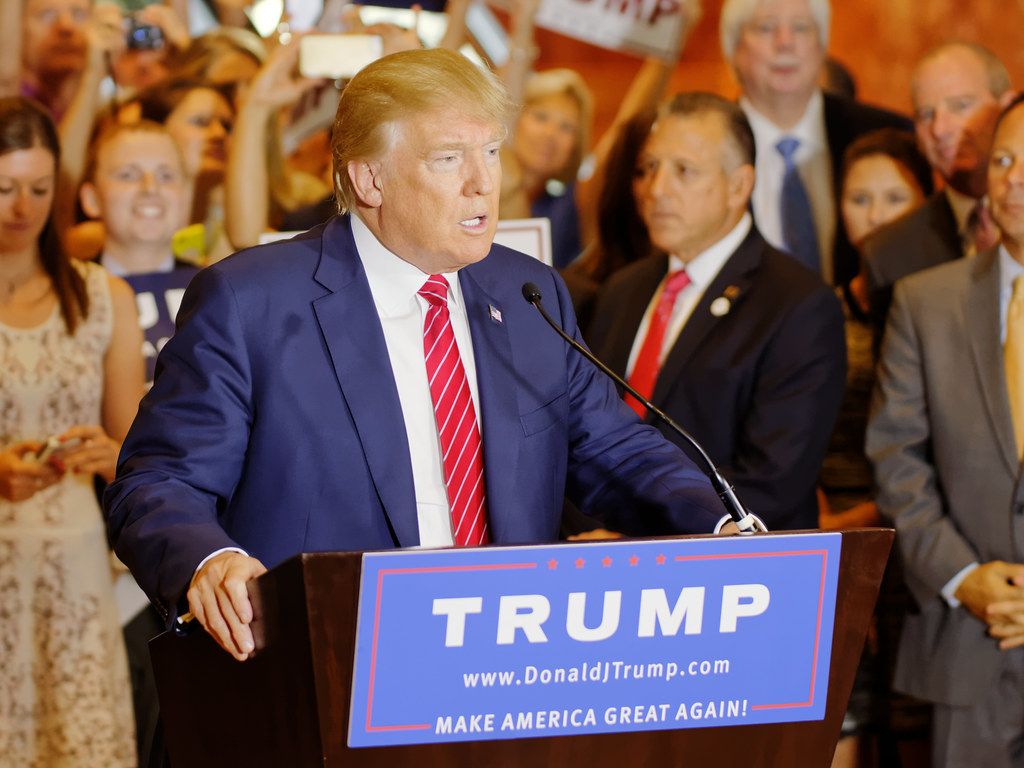
Choosing a name for your baby is one of the most significant and personal decisions new parents face. It is a moment filled with excitement, anticipation and, let’s be honest, often a little stress. With countless options available, ranging from time-honored traditional names to contemporary and unique choices, finding the perfect fit can feel like navigating a maze. And if you are planning a surprise and waiting until birth to find out the sex of your little one, the task becomes doubly challenging, requiring you to narrow down choices for both possibilities simultaneously.
Baby name trends are, by their very nature, ever-changing with the times. We see evidence of this in the recent resurgence of monikers that feel beautifully vintage, such as Constance and Rosalind, harkening back to earlier eras. Experts suggest that the revival of these old-fashioned names, including Aretha, Wilma, Florence, Lucille, Pearl and Hazel, might reflect a growing search for comfort and stability in the past amid uncertain times. These names can also serve as a touching tribute to older or deceased family members, providing a sense of connection and history, while also helping a child stand out in a sea of more common contemporary names.
However, alongside the vintage revival, a powerful and growing trend is capturing the hearts of parents across the globe: the rise of gender-neutral names. This is not just a minor fluctuation; it represents a significant shift in how parents think about identity and potential from the very beginning of their child’s life. According to Sophie Kihm, a name expert at Nameberry, the sheer number of names considered to be unisex has seen a dramatic increase, rising by a notable 56% in England and Wales since 2023 alone. This surge indicates a broadening acceptance and adoption of names that do not adhere to traditional gender boundaries.

1. **Addison**: Addison stands out as one of the popular unisex names that are making a significant impact at present. Its inclusion on trending lists reflects a broader movement that parents are embracing. This name, along with many others like it, contributes to the statistic shared by Nameberry expert Sophie Kihm, highlighting the dramatic increase in the number of names now classified as gender-neutral.
This trend does not occur in a vacuum; it is driven by thoughtful considerations. As Sophie Kihm explained to Metro, a key reason for the rise of gender-neutral names is the flexibility they offer. Parents are increasingly choosing names that “give children flexibility, should they not identify with their birth gender later in life,” thus providing their child with more room to define their identity as they grow. Addison exemplifies this forward-thinking approach to naming.
Choosing a name like Addison enables parents to provide their child with a name that is versatile and adaptable. It aligns with the modern perspective that a name does not need to predetermine or rigidly define a person’s gender identity. By selecting a unisex name, parents are potentially offering their child a linguistic space that supports future self-discovery and expression, which makes names like Addison appealing in today’s diverse world.
Read more about: From City Miles to Office Styles: Comfort-First Heels for Summer 2025

2. **Alexis**: Alexis is another name that is frequently cited as a popular choice in the expanding realm of unisex baby names. Its appeal aligns with other significant motivations that parents have when they move away from strictly gendered options. Experts point to the potential of such names to influence how a child is perceived by others, a factor of which parents are keenly aware when making this important decision.
Gender specialist Rebecca Minor spoke on this topic, explaining that unisex names are increasingly “favored to reduce gender-based discrimination.” This perspective is grounded in the understanding that a name can carry unconscious biases. Studies, in the relevant context, have demonstrated that gender bias can, unfortunately, “influence everything from job applications to leadership opportunities.” Choosing a neutral name is regarded by some parents as a proactive measure against this.
Names like Alexis, by being accessible across genders, “enable individuals of any gender identity to use them, offering flexibility in how others perceive them,” Rebecca Minor stated. Giving a child a non – gendered name “may help mitigate such biases,” providing a basis for others to see the individual first, rather than through the lens of traditional gender expectations. Alexis fits perfectly into this strategy for modern, conscious naming.
Read more about: Black Magic: 12 Effortless Ways to Look Chic in Black This Summer

3. **Alex**: Alex is a classic example of a name that has long transcended traditional gender boundaries, and it remains a highly popular option amid the current upsurge in gender – neutral naming. While many unisex names may seem newly invented or contemporary, names like Alex illustrate that the concept of a versatile name is not entirely novel. However, its popularity is undoubtedly being propelled by current trends that favor less rigid gender categorization.
Sophie Kihm from Nameberry pointed out that “many unisex names are typically more modern than traditional ‘male’ and ‘female’ names.” Although Alex has historical origins, its concise and adaptable nature endows it with a distinctly modern appeal. Contemporary names, she added, “are proving to be more popular, with the influence of major pop – culture moments driving this increase.” While Alex was not associated with a specific cultural event in the same context as the name Barbie was, its lasting popularity fits the broader pattern of contemporary, adaptable names gaining momentum.
The allure of a name like Alex lies partly in its straightforward simplicity and widespread recognition. In a world where identity is becoming increasingly fluid, a name like Alex provides familiarity without being rigidly confined by gender. Its popularity highlights the shift towards names that offer ease of use and broad acceptance, aligning with the modern desire for names that feel current and unconstrained by traditional gender expectations.
Read more about: Cars for First-Time Buyers in the US: What New Drivers Are Choosing

4. **Avery**: Avery has witnessed a substantial increase in popularity as a gender – neutral name, representing another aspect of the motivations propelling this trend. Beyond flexibility, the aspiration to minimize potential societal biases from the very beginning plays a pivotal role for numerous parents, and names like Avery are regarded as facilitating the attainment of this objective. The influence a name can exert on how a child is perceived constitutes a significant consideration.
Psychologist Leah Levi emphasized to HELLO! that a name “is frequently the first element people learn about us, and it can impact how we are perceived.” Although her discussion specifically connected names to perceptions of wealth and success, the fundamental premise that names shape initial impressions is highly pertinent to the gender – neutral trend. Rebecca Minor’s assertion that choosing a non – gendered name “may contribute to mitigating such biases” directly addresses this issue.
By opting for a name like Avery, parents are making a decision that aims to furnish their child with a neutral starting point in interactions. The expectation is that by eschewing a strictly gendered label, the child’s personality, skills, and identity will be the primary focus, rather than potentially encountering unconscious assumptions associated with traditional gender roles. Avery, as a well – known unisex name, epitomizes this aspiration for a name that facilitates a broader and less biased perception.
Read more about: Beyond the Tip Jar: Unpacking the Racist Roots and Enduring Inequality of the Tipped Minimum Wage

5. **Quinn**: Quinn stands as another name included among the prevalent unisex options that resonate with today’s parents. Its increasing adoption mirrors the intricate interplay of factors influencing naming trends in the contemporary environment. While we observe parents turning to the past with vintage names and exploring cultural identity through Anglo versus non-Western choices, names like Quinn signify a distinct trajectory centered on future prospects and present-day values.
The context clearly indicates that baby name trends are “ever-shifting,” and the upsurge in names like Quinn exemplifies a significant shift towards versatility. Nameberry expert Sophie Kihm’s remark regarding the 56% increase in the quantity of unisex names is not merely a numerical value; it represents a substantial collection of names, including Quinn, that are now widely deemed appropriate for any child, irrespective of the gender assigned at birth.
Ultimately, the popularity of names like Quinn is linked to the compelling reasons we have examined: the yearning for flexibility in how a child identifies later in life, the proactive measure to potentially mitigate gender-based discrimination, and the allure of modern, less restricted identities. Quinn, with its concise and powerful nature, encapsulates the essence of this movement, providing parents with a name that feels both contemporary and mindful of the future, in line with the growing trend towards names that transcend traditional gender boundaries.
As we progress on our exploration of the realm of popular unisex names, we encounter the next group of monikers that are capturing the attention of expectant parents. These names continue to epitomize the modern desire for flexibility and fluidity that we have witnessed driving this trend. They offer sounds and histories that resonate with parents seeking options that are not confined by traditional gender boundaries, fitting seamlessly into the evolving landscape of what a baby name can signify in today’s world.
Read more about: From Parisian Neutrals to NYC Black: How Stylish People Are Mastering Summer 2025 Looks

6. **Rowan**: Rowan stands as another name that has firmly cemented its position on the list of prevalent unisex options. Its inherently natural, perhaps even marginally whimsical, quality appeals to numerous parents in search of something that feels both well – grounded and adaptable. Names akin to Rowan highlight the diverse origins and styles that are now deemed suitable for any child, diverging from the more rigid categorizations of yesteryear.
This name serves as an exemplar of the increasing ease with which parents are selecting a name that does not immediately indicate gender. It is in line with the viewpoint shared by experts such as Sophie Kihm, who observed the substantial increase in names now classified under the unisex category. Opting for a name like Rowan is a deliberate decision to embrace that expanded range of possibilities, choosing a moniker that feels open – ended and replete with potential.
Rowan’s popularity also attests to a broader appreciation for names derived from nature or possessing a soft, flowing sound, characteristics often present in both traditionally male and female names. Its inclusion on this list underscores the notion that names can be aesthetically pleasing and meaningful without being bound to historical gender roles, providing a fresh and contemporary sentiment that resonates with today’s parents.

7. **Charlie**: Charlie, frequently serving as a nickname for Charles or Charlotte, has long occupied a liminal space between genders. However, its ascent as an independent, truly unisex name is remarkable. It is a cordial, accessible name that feels both familiar and novel, encapsulating the accessibility and relatability that numerous parents emphasize when selecting a name for their child. This name substantiates that sometimes the most cherished unisex options are those that have merely shed their rigid gendered associations over time.
The broad acceptance and acknowledgment of Charlie render it a convenient choice for parents navigating the realm of unisex names. Its popularity spanning different generations and regions gives rise to the perception that it is a name that can effortlessly suit any personality. It stands as evidence of how names can evolve in their utilization, becoming increasingly versatile as societal norms undergo transformation.
Opting for Charlie can also serve as a means to honor a family name (such as Charles or Charlotte) while bestowing upon the child a modern, non – gender – conforming version. It enables parents to establish a connection with tradition while simultaneously adopting a more contemporary and flexible approach to naming. This amalgamation of the familiar and the modern renders Charlie a consistently attractive choice.
Read more about: 20 Iconic Tom Cruise Films: Action, Drama, and Beyond

8. **Eden**: Eden embodies a sense of tranquility and natural elegance, and its burgeoning popularity as a unisex name serves as a testament to its intrinsic allure and the escalating receptivity towards names that evoke a sense of emotion rather than being strictly categorized as masculine or feminine. This name, with its biblical origins, illustrates that even names derived from historical or traditional sources can be adopted as gender-neutral alternatives in the contemporary naming milieu.
The utilization of names such as Eden for both boys and girls exemplifies the yearning for names that elicit a particular sentiment or image, prioritizing aesthetic appeal and significance over conventional gender alignment. Its mellifluous sound and placid connotation render it an irresistible option for parents in search of a name that feels both distinctive and universally appealing.
The ascent of Eden underscores the fact that the trend towards unisex names is not solely centered around the creation of entirely novel monikers; it also involves the re-examination and re-designation of existing names in accordance with contemporary sensibilities. Names like Eden defy the notion that specific sounds or meanings are inherently associated with a single gender, thereby expanding the scope of possibilities for new parents.
Read more about: Cars for First-Time Buyers in the US: What New Drivers Are Choosing

9. **Rory**: Rory, with its vibrant yet accessible aura, emerges as another formidable contender in the unisex name trend. Historically more closely associated with boys, its growing utilization for girls serves as a prime illustration of the fluidity evident in contemporary naming practices. It possesses a distinctive sound and Irish heritage that endow it with character, thereby appealing to parents who desire a name that stands out somewhat yet remains widely attainable.
The escalating popularity of Rory across genders underscores the notion that names are becoming less rigidly circumscribed by tradition. Parents are increasingly at ease with employing names they cherish, irrespective of historical usage or perceived gender norms. This transformation constitutes part of the broader movement towards names that mirror individuality and defy traditional constraints.
Opting for a name like Rory can be regarded as embracing the inherent sound and potency of a name, enabling it to stand independently without being confined by gender. It is a name that exudes modernity and vivacity, aligning well with the current preference for names that feel contemporary and less formal than some older, highly gendered alternatives.
Read more about: Remembering the Icons: Legendary Rock Guitarists Who Shaped Sounds and Left Indelible Marks

10. **Wren**: Wren, named after the diminutive bird, stands as a quintessential illustration of the prevalence of nature-inspired names within the unisex category. Its succinct sonority and unequivocal association with the natural realm render it an enchanting and progressively favored option for both boys and girls. This name epitomizes the trend of deriving inspiration from the environment for names that exude a sense of gentleness, uniqueness, and gender neutrality.
Nature names such as Wren possess an intrinsic allure that transcends conventional gender boundaries. They frequently evoke sensations of freedom, beauty, and simplicity—qualities that parents deem desirable for their offspring. The escalating utilization of Wren underscores how sources beyond traditional naming conventions are furnishing fertile ground for novel unisex alternatives.
Opting for a name like Wren enables parents to bestow upon their child a name that is distinctive and carries a delightful natural connotation. It fits seamlessly into the contemporary naming landscape, where parents are in pursuit of names that are meaningful, somewhat unconventional, and suitable for any child, irrespective of gender.
Beyond the burgeoning acceptance of names like Rowan, Charlie, Eden, Rory, and Wren, the context unveils that the baby-naming sphere in 2025 is a captivating amalgamation of influences. While gender-neutral names are undoubtedly on the ascent, other significant trends are shaping parents’ selections, reflecting broader societal and cultural transformations.
One notable trend is the unanticipated resurgence of certain antiquated names. We briefly touched upon this in the initial section, but it is worth re-emphasizing the appeal of appellations such as Aretha, Wilma, Florence, Lucille, Pearl, and Hazel. Experts posit that this revival could be a reaction to uncertain times, with parents finding solace and stability in names that feel anchored in the past. These vintage choices can also serve as exquisite tributes to older family members or assist a child in standing out from more prevalent contemporary names, offering a sense of history and distinctiveness.
On a more disconcerting note, the context indicates a decline in the popularity of certain non-Anglo names, such as Shakira, Kieron, Rahul, and Kirsten, as well as others like Rianna, Shania, Nisha, Cheyenne, Kiran, Tia, Fahima, Tayyibah, Faizaan, Jaheim, Kirk, Husnain, Pavan, Kishan, and Sachin. Anna Pyshna, a spokesperson from Preply, characterized this as a profound loss of language diversity in UK birth records, occurring even as more children are born to non-UK-born mothers.
Pyshna elucidated that while assimilation plays a role, factors such as mispronunciations and negative reactions can also impel parents towards names that feel more familiar or Western. The context explicitly asserts that discrimination against individuals with non-Anglo names has likely contributed to this trend, with parents opting for names like Luna, Conrad, Ruby, and Dylan, which are gaining popularity. Anna Pyshna underscored the conviction that no one should have to compromise their heritage, suggesting that assisting people in pronouncing diverse names correctly can bolster cultural confidence and keep these traditions alive. This trend stands in stark contrast to the increasing diversity observed in other aspects of naming, highlighting a complex and occasionally challenging dynamic in the naming landscape.
The context also alludes to more modern influences shaping 2025 trends, specifically citing social media, ‘fast fashion,’ and a ‘femininomenal’ approach as highlighted by Nameberry’s analysis. The ‘fast fashion’ trend entails blending current styles and varied spellings to create original names that capture a specific moment or trend, such as Banx and Scottlyn. This approach treats names almost like disposable trends, generating unique combinations that may not possess deep historical roots but feel very much of the moment.
The ‘femininomenal’ trend, influenced by popstar Chappell Roan and her song ‘Femininomenon’, embodies strength in femininity, described as campy and girlish but not overly pretty. These names are influenced by history, myths, queerness, and the celebration of female achievements and relationships. Examples include Aurelia, Ophelia, Lavinia, Rhiannon, and Seraphina, building on last year’s ‘Feminine Feminist Names’ trend (like Billie, Matilda, Eleanora, Tallulah), which was inspired by the Barbie movie’s influence on celebrating femininity. These trends demonstrate how contemporary culture, from music to film and online trends, is directly impacting the sounds and styles parents are choosing for their children, showcasing a desire for names that are expressive, culturally aware, and empowering.
Read more about: 18 Motorcycle Legends: The Most Memorable Bikes in History
Ultimately, the world of baby naming in 2025 is a vibrant tapestry woven from threads of tradition, modernity, social awareness, and cultural shifts. Whether parents are drawn to the flexibility of gender-neutral names such as Rowan and Wren, the comforting echo of vintage monikers, or names inspired by pop culture and a desire for empowerment, each choice reflects their hopes, values, and the unique identity they envision for their child. The trends we have explored paint a picture of parents making thoughtful, sometimes challenging, decisions in a world where a name is increasingly seen not just as a label, but as a powerful tool for shaping identity and potential from the very beginning. Happy baby name picking, indeed!



